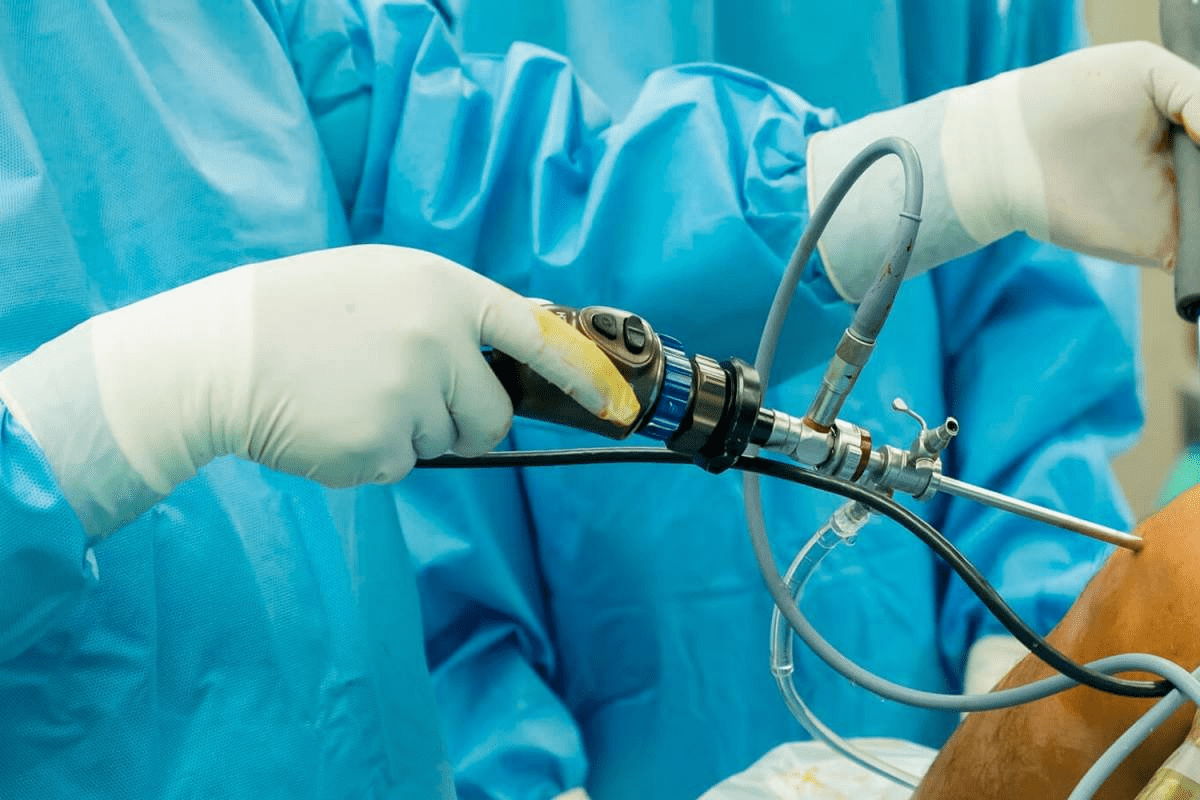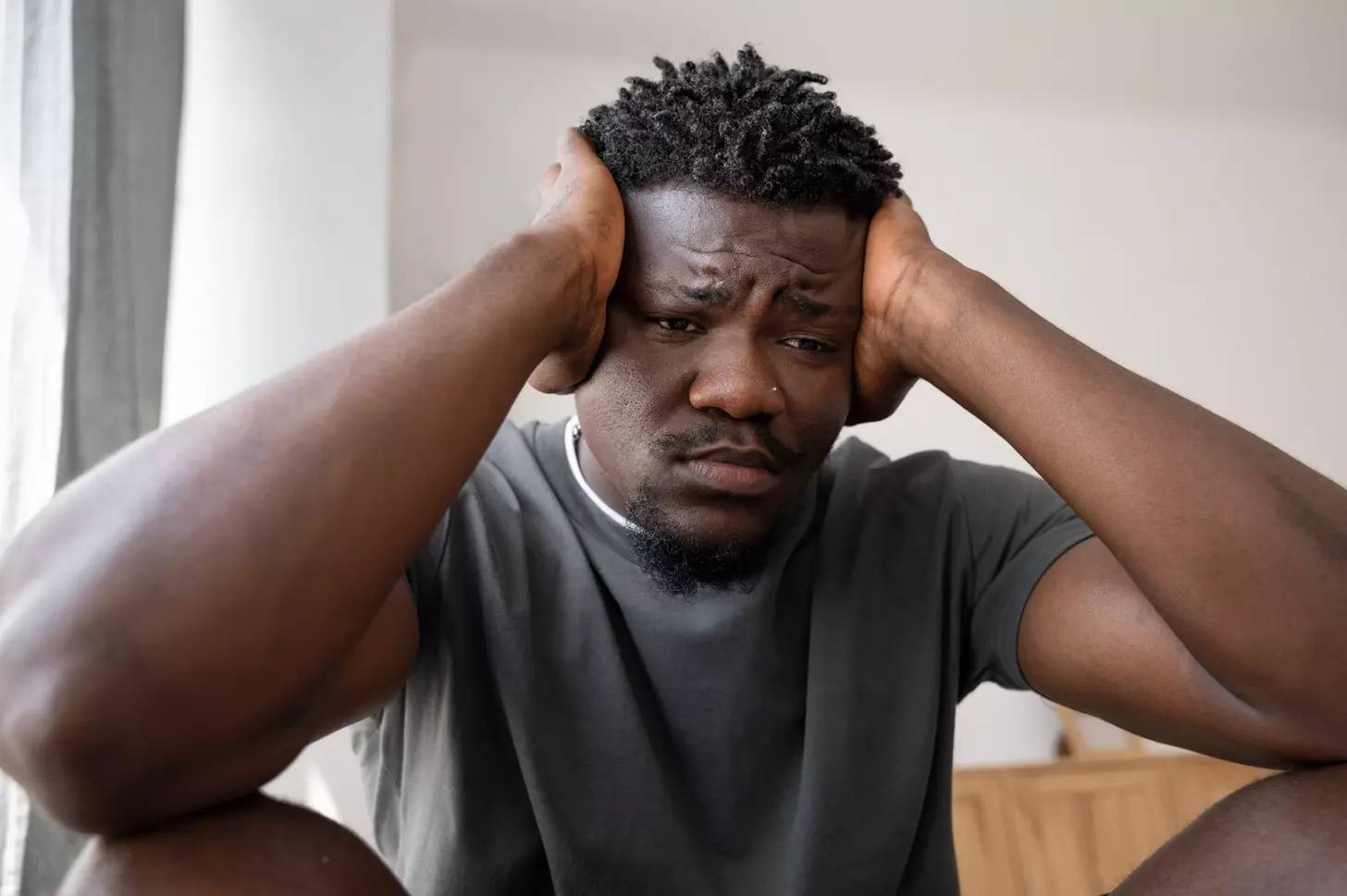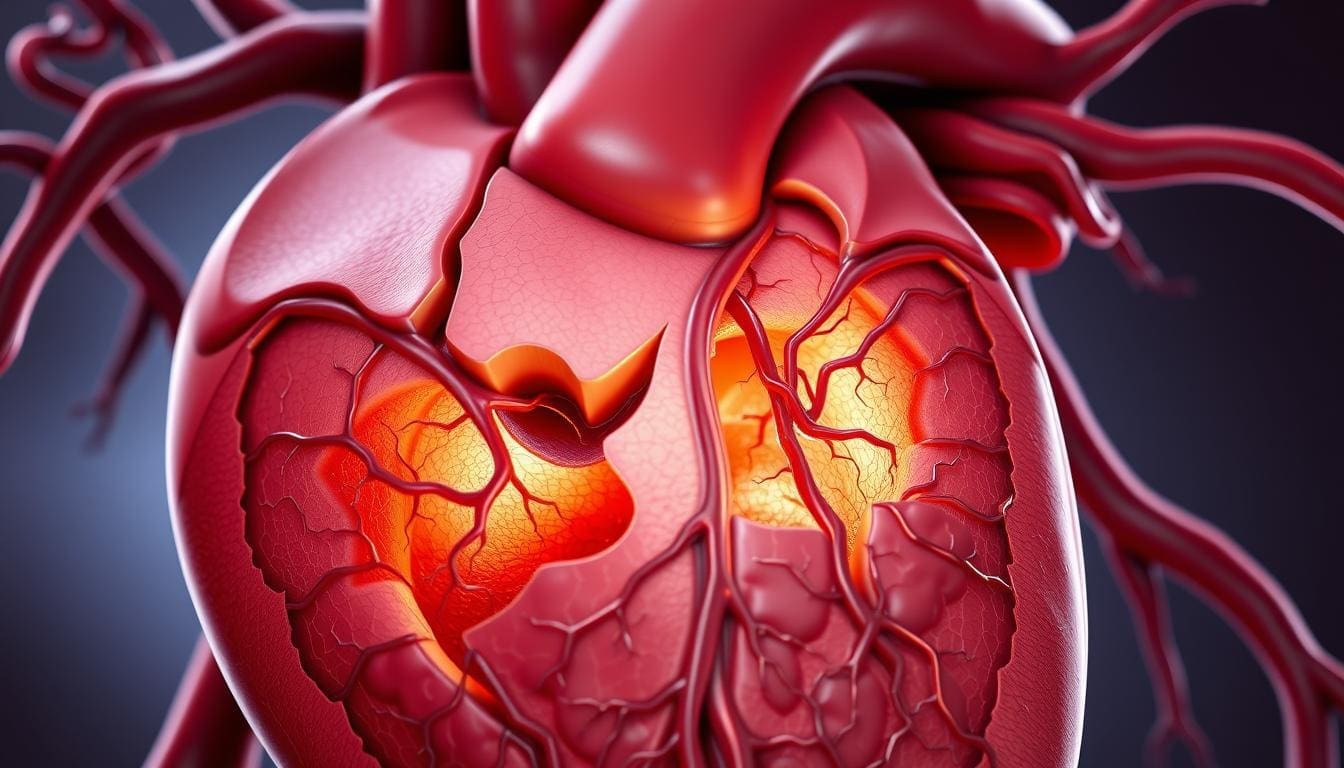Last Updated on November 27, 2025 by Bilal Hasdemir
A shocking number of oncologists would refuse chemotherapy for themselves. This has sparked a lot of controversy about this common cancer treatment. People often ask, “Is it true that oncologists would refuse chemo? since the idea challenges trust in such a widely used therapy.
Chemotherapy, or chemo, is a treatment that uses medicines to kill cancer cells in the body. These drugs target cells that grow fast, like cancer cells. But, the treatment can really hurt the body, making people wonder if it’s safe and works well.
Looking into the debate about chemotherapy, it’s key to know what chemotherapy does to your body and the dangers it might bring.
Key Takeaways
- Chemotherapy is a cancer treatment that targets rapidly dividing cells.
- The impact of chemotherapy on the body can be severe.
- Some oncologists refuse chemotherapy due to its possible risks.
- Understanding the effects of chemotherapy is important for patients.
- Chemotherapy’s effectiveness and safety are topics of ongoing debate.
The Reality of Chemotherapy Treatment

Chemotherapy is a key part of cancer treatment. It uses drugs to kill or slow down cancer cells. This treatment can reach cancer cells all over the body.
How Chemotherapy Works to Fight Cancer
Chemotherapy targets cells that are dividing. Cancer cells divide more than normal cells, making chemotherapy effective. But, it also affects normal cells that divide fast, like hair and digestive tract cells.
Chemotherapy does not kill your immune system, but it can harm it. Doctors watch the immune system closely to avoid side effects.
The Difference Between Treating and Curing Cancer
It’s key to know the difference between treating and curing cancer. Chemotherapy can shrink tumors and improve life quality. But, curing cancer means getting rid of it completely, which chemotherapy alone can’t always do.
Success Rates by Cancer Type
| Cancer Type | 5-Year Survival Rate | Response to Chemotherapy |
| Breast Cancer (Stage IV) | 28% | Often used to control symptoms |
| Duodenal Cancer (Stage IV) | 4% | Used for palliative care |
| Leukemia | 65% (varies by type) | Can be curative in some cases |
Chemotherapy success varies by cancer type. For some, like certain leukemias, it can cure. For others, it helps extend life or improve its quality.
The Claim: Would 90% of Oncologists Refuse Their Own Chemotherapy?
The idea that 90% of oncologists wouldn’t take chemotherapy for themselves is a big debate. It makes people wonder if chemotherapy really works and is safe. Chemotherapy is a common treatment for many cancers.
Origin and Spread of This Controversial Statement
Where this claim started is unclear, but it’s talked about a lot. People point to studies and surveys to back it up. But, how these findings are seen can vary a lot.
What Surveys of Medical Professionals Actually Reveal
Studies on doctors’ views on chemotherapy show some interesting things. A Stanford University study found doctors often choose not to be saved when they’re dying. But, they usually push for aggressive treatments for their patients in the same situation.
Why Context Matters in Treatment Decisions
When it comes to choosing treatments, context is key. Deciding on chemotherapy depends on many things. These include the cancer type, its stage, the patient’s health, and what they personally want.
| Factors Influencing Chemotherapy Decisions | Description |
| Type and Stage of Cancer | The decision to use chemotherapy depends on the cancer type and its stage. |
| Patient’s Overall Health | The patient’s general health and presence of comorbidities influence chemotherapy tolerance. |
| Personal Preferences | Patients’ personal values and preferences play a significant role in treatment decisions. |
It’s important to understand these factors for better cancer treatment choices. The claim about oncologists and chemotherapy is thought-provoking. It shows how complex cancer treatment is and how important personalized care is.
Recognizing the Signs Chemo Is Killing You
Chemotherapy is a double-edged sword; it fights cancer but can harm the body. Many cells in your body, like those in your gut, hair, skin, and nails, are affected. This can lead to a lot of side effects.
Normal Side Effects vs. Dangerous Complications
Common side effects include nausea, hair loss, and fatigue. But, some side effects are more severe and need quick medical help. It’s important to know the difference between normal side effects and dangerous ones.
For example, some fatigue is okay, but extreme tiredness that stops you from doing daily tasks is not. It could mean a bigger problem.
Warning Signs That Require Immediate Medical Attention
Some symptoms mean chemotherapy is causing more harm than good. Look out for severe pain, trouble breathing, chest pain, and severe bleeding or bruising. If you see any of these, get medical help right away.
Monitoring Blood Work and Vital Organ Function
Regular blood tests are key during chemotherapy. They check your body’s response to treatment. This includes your white blood cell count to prevent infections and your platelet count to prevent bleeding.
They also check your red blood cell count to prevent anemia. Plus, they watch your heart and kidney function to avoid long-term damage.
Knowing how chemotherapy affects you is important for managing side effects. Treatments like chemotherapy with Taxotere have specific side effects to watch out for. By understanding the risks and taking action, patients can handle their treatment better.
What Chemotherapy Actually Does to Your Body
Chemotherapy uses strong chemicals to fight cancer. It can have big effects on the body. Knowing these effects helps patients make better choices about their care.
Short-term Physical and Psychological Effects
Chemotherapy can cause many immediate side effects. These include nausea, fatigue, hair loss, and a higher risk of infection. The drugs harm not just cancer cells but also healthy cells.
The psychological toll of chemotherapy is huge. Patients often feel anxious, depressed, and stressed because of their diagnosis and treatment.
Long-term Health Consequences and Survivorship Issues
Survivors of cancer may face long-term health problems after chemotherapy. These can include heart issues, secondary cancers, and cognitive problems. Survivorship care is key to help manage these late effects.
How Chemotherapy Affects Different Body Systems
Chemotherapy impacts different body systems in various ways. For example:
- The immune system is weakened, making infections more likely.
- The reproductive system can be harmed, leading to infertility.
- The cardiovascular system may suffer, causing heart problems.
Knowing these effects is important for managing side effects and improving life quality during and after treatment.
Research is ongoing, and treatments like temozolomide are being used more effectively. New therapies aim to lessen the harsh effects of traditional chemotherapy. Whether chemotherapy is worth it depends on many factors, including the cancer type, overall health, and personal preferences.
When Chemotherapy Is Not Recommended by Oncologists
Oncologists carefully look at each patient’s situation. They decide the best treatment based on their condition.
Medical Contraindications and Risk Factors
Some medical issues or risks make chemotherapy too dangerous. For example, those with severe heart or kidney problems might face serious side effects.
- Advanced age with significant comorbidities
- Poor performance status
- Severe organ dysfunction
End-of-Life Considerations and Terminal Diagnoses
When cancer is terminal, treatment goals change. Chemotherapy might not be suggested if it won’t improve life quality.
Stage 4 Cancer Prognosis and Treatment Goals
For stage 4 cancer, treatment aims to manage symptoms and extend life. The choice to use chemotherapy depends on health, cancer type, and personal wishes.
It’s important for patients and families to talk openly with their healthcare team. Discussing the pros and cons of chemotherapy helps make informed decisions. This way, they can decide if chemotherapy is right for them.
The Risk-Benefit Analysis: Is Chemotherapy Worth It?
When someone gets a cancer diagnosis, they and their family face a tough choice. They must decide if they should get chemotherapy. This treatment kills cancer cells but comes with risks and side effects.
The treatments patients get depend on the healthcare system, not their wishes. This shows how important it is to make informed choices about cancer treatment.
Survival Statistics vs. Quality of Life Considerations
Chemotherapy can help many cancer patients live longer. For example, stage four cancer survival rates have gone up thanks to better treatments. But, it’s also important to think about how it affects their quality of life quality. Effective pain management for cancer patients is key to keeping their life quality good during treatment.
As one expert said, “The goal of cancer treatment is not just to extend life, but to improve its quality.”
“The strongest people are those who can stand alone, make their own decisions, and accept their fate.”
This shows how important it is for patients to have control over their treatment choices.
How Age and Overall Health Affect Treatment Outcomes
Age and health play big roles in how well chemotherapy works. Older patients or those with health issues might face more severe side effects. It’s vital for patients to talk about their situation with their doctor.
Questions to Ask Before Starting Chemotherapy
- What are the possible benefits and risks of chemotherapy for my specific type and stage of cancer?
- How will chemotherapy affect my quality of life, and what supportive care options are available?
- Are there other treatments or therapies that could be used with chemotherapy?
By asking these questions, patients can make better choices about their care. Items like a cancer gift basket can also offer comfort and support during this hard time.
Aggressive Chemotherapy: When More Treatment Isn’t Better
Aggressive chemotherapy raises big questions about treating cancer without harming the patient too much. Chemotherapy is key in fighting cancer, but sometimes, too much treatment can be worse than the disease itself.
Defining Aggressive Treatment Protocols
Aggressive chemotherapy uses high doses of drugs, often with other treatments. It aims to kill cancer cells fast, but it can cause serious side effects. Knowing how chemo is done helps patients get ready for what might happen.
Scientists are always studying how different chemotherapy works. They look into whether low-dose chemotherapy is effective and if it’s better than high doses in some cases. They find that lower doses might work just as well with fewer side effects.
When Doctors Recommend Scaling Back Treatment
Doctors might suggest less chemotherapy when the risks outweigh the benefits. This choice depends on the patient’s health, age, and cancer type.
Palliative vs. Curative Approaches
Switching from trying to cure cancer to focusing on comfort is a big decision. Curative care tries to get rid of cancer, while palliative care aims to ease symptoms and improve life quality. It’s important for patients and families to know the difference, like when wondering what is worse: chemo or radiation.
| Treatment Approach | Primary Goal | Focus |
| Curative | Eliminate cancer | Treatment intensity |
| Palliative | Improve quality of life | Symptom management |
Chemotherapy can greatly affect how long a patient lives. Research has looked into how many years does chemotherapy take off your life. But, the answer depends a lot on the person’s situation.
Alternative and Complementary Approaches to Cancer Care
Many patients are looking into new ways to fight cancer. While traditional chemotherapy is key, there’s a growing interest in other therapies. These can support or add to traditional treatments.
Evidence-Based Alternatives to Traditional Chemotherapy
Some patients want to try new, evidence-based treatments. These include targeted therapies and immunotherapies. They might have fewer side effects and are a promising area of research.
Integrating Complementary Therapies with Conventional Treatment
Therapies like yoga, meditation, and acupuncture can help with symptoms. They don’t replace traditional treatment but can improve quality of life.
Evaluating Claims About Alternative Cancer Treatments
It’s important to carefully look at claims about alternative cancer treatments. Always talk to your healthcare provider before trying something new. This ensures it’s safe and won’t harm your treatment plan.
When thinking about alternative or complementary therapies, weigh the good against the bad. Some methods may help with wellness, but there’s no proof they can cure cancer. They shouldn’t replace treatments like chemotherapy.
Key Considerations:
- Consult with healthcare providers before starting any new therapy.
- Evaluate the evidence supporting alternative or complementary treatments.
- Consider the possible risks and benefits.
By being thoughtful and informed, cancer patients can make choices that support their care and well-being.
The Evolution of Cancer Treatment Beyond Traditional Chemotherapy
The way we treat cancer is changing. We’re moving away from old methods like chemotherapy. New, better ways to fight cancer are being found.
Targeted Therapies and Precision Medicine
Targeted therapies are a big step up from old treatments. They aim at specific parts of cancer, not harming healthy cells. Precision medicine goes even further. It tailors treatments to each person’s unique genetic makeup. This can make treatments more effective and safer.
Immunotherapy and Biological Response Modifiers
Immunotherapy uses the body’s immune system to fight cancer. It boosts the immune system to attack cancer cells. Biological response modifiers help the body’s defenses work better against cancer.
Low-Dose Chemotherapy Approaches
Low-dose chemotherapy, or metronomic chemotherapy, uses smaller doses over time. It’s being tested for different cancers. It might reduce side effects and improve life quality.
Patient Rights: The Legal and Ethical Aspects of Refusing Treatment
Choosing to have or not have cancer treatment is a personal choice. It involves legal and ethical issues. People with colorectal cancer can choose not to have chemotherapy. But, they should think carefully and talk to doctors first.
Understanding Informed Consent and Patient Autonomy
Informed consent is key in healthcare. It means patients know all about their treatment options. This includes the good and bad sides.
Knowing what chemotherapy does is important. It uses drugs to kill cancer cells. It can make you very tired, cause hair loss, and make you more likely to get infections. Understanding this helps patients make better choices.
Having Difficult Conversations with Your Healthcare Team
Talking about not wanting treatment can be hard. It’s important to ask questions. You should know about the treatment, its effects, and what happens if you don’t have it.
Patients should speak up about their worries and what they want. This is important for making decisions.
Creating a Support System for Decision-Making
Having people you can count on helps a lot. This could be family, friends, or groups for cancer patients. Hearing others’ stories can give you insight and support.
| Key Considerations | Description |
| Informed Consent | Understanding treatment options, benefits, and risks |
| Patient Autonomy | Making decisions based on personal values and preferences |
| Support System | Family, friends, or support groups for emotional support |
Conclusion: Making Informed Decisions About Cancer Treatment
Cancer treatment is a complex and personal choice. It’s important to understand the benefits and risks of chemotherapy. This helps in making informed decisions.
When thinking about chemotherapy, consider your health and cancer stage. Think about how it might affect your life. Some people find chemotherapy helpful, but it’s not for everyone. Looking into other cancer care options can also be helpful.
Understanding your treatment options is key. Weighing the pros and cons of chemotherapy is important. Talking to your healthcare team can help you make the best choice for you. A picture of chemotherapy can also help you understand the process.
FAQ
What is chemotherapy and how does it work?
Chemotherapy is a treatment for cancer that uses drugs. It targets cells that grow fast, like cancer cells. This stops them from growing and multiplying.
Is chemotherapy always effective in treating cancer?
No, chemotherapy isn’t always effective. Its success depends on the cancer type, stage, and the patient’s health.
What are the common side effects of chemotherapy?
Common side effects include nausea, vomiting, hair loss, and feeling very tired. Some may also face more serious issues like anemia or heart problems.
Can chemotherapy cure cancer?
Chemotherapy can cure some cancers, but it’s not a sure thing. It aims to kill cancer cells, but success varies, mainly in advanced stages.
What is the difference between treating and curing cancer?
Treating cancer means managing symptoms. Curing it means removing all cancer cells. Chemotherapy can treat cancer but may not cure it.
Are there alternative treatments to chemotherapy?
Yes, alternatives include targeted therapies and immunotherapy. These can be used alone or with chemotherapy.
Can I refuse chemotherapy?
Yes, patients can refuse chemotherapy. But, it’s important to talk about the risks and benefits with a doctor first.
What are the benefits of chemotherapy?
Chemotherapy can shrink tumors, slow disease growth, and improve life quality. In some cases, it can even cure cancer.
What are the risks of chemotherapy?
Risks include side effects like nausea, hair loss, and fatigue. More serious issues like anemia or heart problems can also occur.
How does chemotherapy impact quality of life?
Chemotherapy can affect life quality through side effects and emotional distress. Yet, some patients see their quality of life improve due to effective treatment.
What is aggressive chemotherapy?
Aggressive chemotherapy uses high doses to target cancer cells. It’s often used for aggressive or advanced cancers.
When is chemotherapy not recommended?
Chemotherapy might not be recommended for severe heart disease or kidney damage. It’s also not for advanced cancer unlikely to benefit from treatment.
What is the role of patient autonomy in cancer treatment decisions?
Patient autonomy is key in cancer treatment decisions. Patients have the right to informed choices, including refusing or accepting treatment.
How can I make informed decisions about cancer treatment?
To make informed decisions, discuss options with a healthcare provider. Consider the benefits and risks of each treatment. Seek support from loved ones and healthcare professionals.
What are the signs that chemotherapy is not working?
Signs include disease progression, worsening symptoms, or new cancer-related problems.
Can chemotherapy be used in combination with other treatments?
Yes, chemotherapy can be combined with surgery, radiation, or targeted therapies for better outcomes.
What is the impact of chemotherapy on long-term health?
Chemotherapy can lead to long-term health issues like secondary cancers or heart problems. Survivors should discuss these risks with a healthcare provider.






